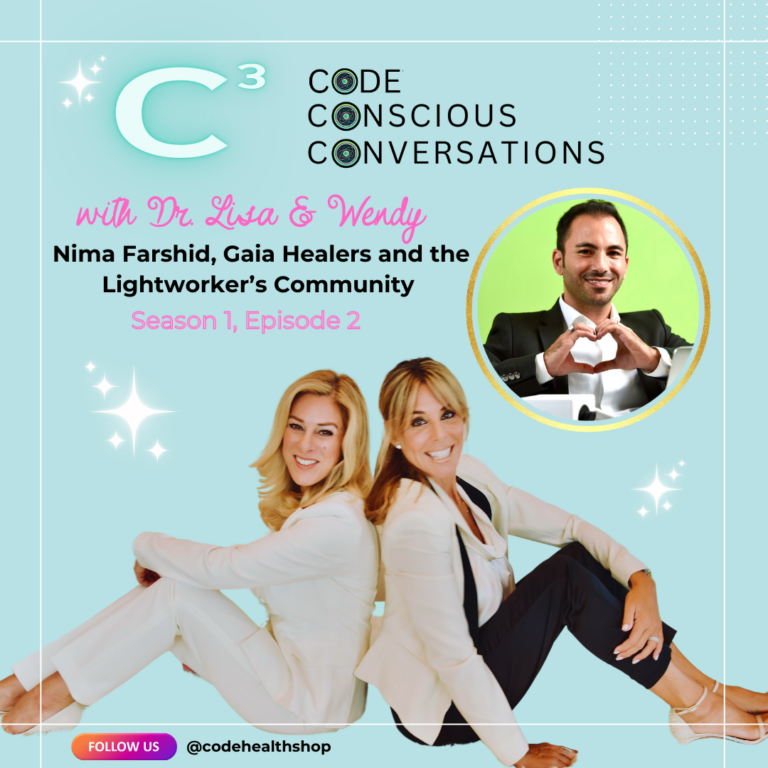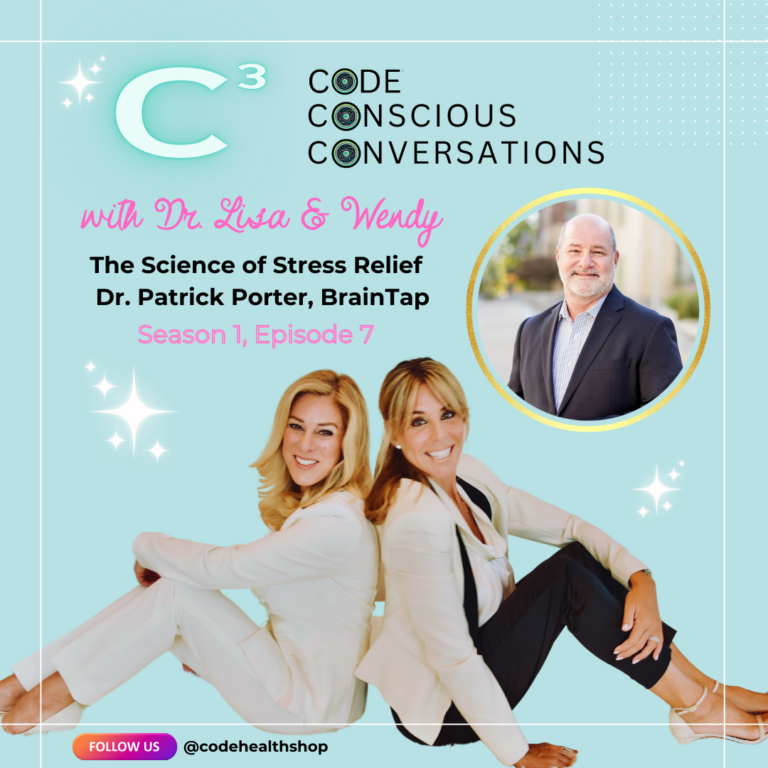Listen to this podcast: C3 Podcast
Are you unknowingly skipping the fundamentals of health that could transform your energy and mental clarity? In our latest episode of C3: CODE Conscious Conversations, we sat down with Dan Metcalf, author of Born Superhuman and creator of the Seven Pillars of Natural Health. His simple, science-backed strategies challenge the belief that wellness is overly complicated.
From the role of hydration in brain recovery to actionable tips for cultivating resilience, Dan’s insights offer a roadmap for optimizing your physical and mental health through practical, intentional choices.
If you’re ready to ditch the overwhelm and start building a solid foundation for lasting health, keep reading. These three key takeaways will help you get started today.
The Power of Simple, Intentional Health Practices
Prioritize Hydration for Brain Recovery
Dehydration impacts your brain long before you feel thirsty, silently affecting your memory, focus, and overall cognitive function. The brain is over 70% water, and even mild dehydration can hinder its ability to process information and regulate emotions. Consistent hydration isn’t just about drinking enough water—it’s about timing and absorption.
Instead of overwhelming your system by drinking large amounts of water all at once, sip small amounts consistently throughout the day. This ensures that your cells have the time and capacity to absorb the hydration they need for optimal function. For nighttime recovery, a simple adjustment can make a significant difference: take just a mouthful of water before bed. This micro-dose hydrates your brain without triggering the frequent trips to the bathroom that can disrupt your sleep. Over time, these small but intentional changes can lead to sharper thinking, better mood regulation, and deeper restorative sleep cycles.
Mindset: The Hidden Driver of Health
Your mindset is a powerful, often overlooked determinant of your physical health. It shapes how you approach challenges, process stress, and maintain long-term habits. Chronic negative thinking or perfectionism places your brain in a constant state of stress, impairing decision-making and derailing even the most well-intentioned wellness plans.
By focusing on progress rather than perfection, you can shift your brain’s reward systems toward positivity and sustainability. Start small: one extra glass of water, one additional serving of vegetables, or five minutes of daily mindfulness. These incremental wins do more than build habits—they reshape your neural pathways, reinforcing optimism and resilience. Science shows that a growth-oriented mindset can lower cortisol levels, improve immune function, and even increase lifespan. It’s not about getting everything right; it’s about making consistent, manageable choices that create lasting change.
H3: Neuroplasticity and the Role of Daily Challenges
Your brain is designed to grow and adapt throughout your life—a process called neuroplasticity. However, this adaptability requires regular stimulation. Without novelty or challenge, the brain’s neural networks can become stagnant, leading to reduced cognitive flexibility and emotional resilience.
Introducing small daily challenges is one of the most effective ways to enhance neuroplasticity. Simple activities like using your non-dominant hand, taking a new route to work, or learning a few phrases in another language activate dormant neural pathways, creating stronger and more efficient brain networks. These micro-challenges not only boost focus and creativity but also improve problem-solving skills and emotional regulation.
Incorporating novelty into your routine keeps your brain dynamic and engaged, ensuring it remains adaptable in the face of stress or change. The result? A sharper mind, a more balanced emotional state, and an increased capacity to handle life’s complexities with ease.
Conclusion: Building Your Path to Better Health
True health isn’t achieved through grand gestures or quick fixes—it’s built through small, intentional actions that compound over time. The framework of the Seven Pillars of Natural Health illustrates how seemingly simple practices—like staying hydrated, cultivating a positive mindset, and challenging your brain—can transform your energy, focus, and resilience.
Each pillar isn’t just a standalone concept; they work in harmony. Hydration fuels your body’s recovery and cognitive clarity. Mindset creates the foundation for sustainable habits, rewiring your brain for positivity and success. Neuroplasticity ensures your brain stays adaptable, keeping you sharp and emotionally balanced in a rapidly changing world. Together, they lay the groundwork for optimized well-being.
Ready to dive deeper and take control of your health? Discover actionable strategies to integrate all Seven Pillars into your daily routine in the latest episode of C3: CODE Conscious Conversations.
🎙️ Now streaming on Apple Podcasts and Spotify. Your journey toward a healthier, more vibrant life starts here.







